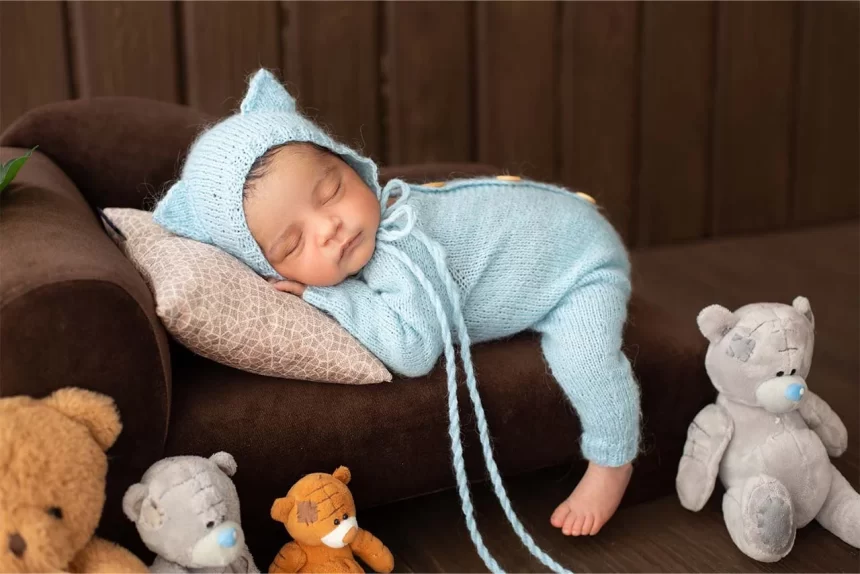According to studies, newborns generally sleep for 8-9 hours in the day and night. The World Health Organization emphasizes letting an infant of 3 months sleep for 14-17 hours in a quiet environment. Babies need to have a good night’s sleep to grow and remain healthy during their growing process. Safe and uninterrupted sleep is one of the most crucial responsibilities of parents.
Making your little munchkin sleep is the biggest task for any parent. Parents need to develop a good and healthy sleep pattern for their baby. This not only helps them grow healthy but also ensures good sleep for the parents to remain healthy and active. Noises and high-pitched sounds can startle a baby while sleeping, disrupting their sleeping cycle and affecting their overall health.
A baby deprived of proper sleep can be cranky and in a bad mood. To make your baby sleep peacefully, parents often adopt certain tricks, including sound tricks. White noise is one such sound trick that many parents rely on to make sure their baby gets a sound sleep. So, what is this white noise? How is it effective in a baby’s sleep? What should be the perfect pitch for the noise to be more effective? How loud should white noise be for babies? The answer to all these questions is given in this article.
What is this Thing Called White Noise?
White noise, as the name signifies, is a specific broadband sound that contains almost all audible frequencies at equal intensity. Unlike brown and pink noise, white noise is a broadband sound with fewer deep sounds. Studies on the effectiveness of white noise on humans have somewhat found its role in soothing crying babies, counteracting the symptoms of attention deficiency, and improving work performance. The sound of white noise is the noise of television static. It is generally utilized to mask other environmental loud noises.
Apart from these studies, many other studies have researched its effect on human sleep. The effectiveness of white noise in improving sleep is still under the research process, and strong evidence is yet to be confirmed by researchers.
Does it Actually Help babies Sleep?
Although research is still going on to find concrete evidence in support of white noise’s impact on sleep, current studies have provided results both in support and against white noise’s effect on human sleep. Some of the studies have discovered that white noises help newborn babies sleep faster when played throughout the night. It can help babies fall asleep by creating a soothing and familiar sound they used to hear while in the womb. It has the ability to block all surrounding noises for a baby to aid them in their sleep. Research by the Archive of Disease in Childhood identified that almost 80% of the baby participants from the study were found to fall asleep within five minutes of hearing the white noise.
White Noise Sound Machines: Baby Sleep Aids
There are some effective white noises producing sound machines available in the market that can help your baby sleep. Some popular and widely used machines are- Hatch Rest Sound Machine 2nd Gen, Momcozy white noise machine, Baby Shusher The Sleep Miracle, Yogasleep Nod Sound Machine and Night Light, and more. Some of these sound machines have the sound mimicking the mother’s heartbeat, which effectively aids crying babies to sleep.
How loud should the white noise be for babies?
If you are thinking of going for white noise to make your baby sleep, then this question is bound to come to your mind- “How loud should white noise be for babies?” If you are a new parent and are about to buy a white noise-producing sound machine, you must first know at what pitch the sound should be in to help your infant sleep rather than disturb his sleep. Consider the cost of surrogacy if you want to be a parent but are left with no choices.
As long as your baby is listening to the white noise at a preferable level, it is unlikely for them to face any negative impact from that noise. Maintaining the volume of the white noise is important to ensure your baby is having a safe and sound sleep. If a baby is less cranky before drifting off to sleep, a sound volume ranging between 57-68 decibels would be beneficial. A noise this loud resembles a whisper and lullaby that can work wonders for your baby to get sleep. Another study by the American Academy of Pediatrics has emphasized keeping the white noise machine 7 feet away from the baby with a volume set to no more than 50 decibels. This can be summed up by saying that an average of 50 decibels of volume is suitable for babies sleeping.
Pros and Cons of White Noise Babies
Using white noise for your baby to help him/her sleep peacefully can offer the benefits of:
- Helping the baby sleep faster
- Blocking household noises to help create a quiet sleeping environment
- Comforting newborns with white noise, mimicking the mother’s heartbeat
On the other hand, white noise comes with some negative impacts for the babies. These are-
- The noise machine can disturb sleep if played at a loud level
- This can restrict the sleep pattern of the babies by making them dependent on this sound
- This noise does not work for all babies
- It can damage infant hearing and auditory development if played in a loud volume
Sounds can be both disturbing and soothing at the same time if played at a desired volume. Likewise, white noise sound can also help babies sleep well or wake them up if not played at the desired volume. So, from now onwards, if you decide to use white noise for your baby, you are now well informed about how loud the white noise should be for your baby.










